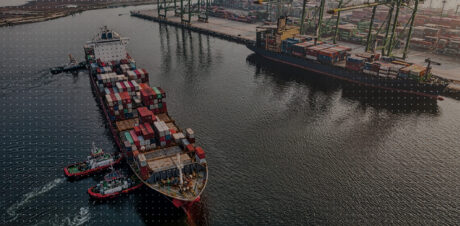A public records investigation by Sayari has uncovered 26 companies connected to entities and individuals suspected of being linked to illicit fuel theft in Mexico. Given their links to entities and individuals who have purportedly participated in the illicit fuel trade in Mexico, these companies could be at heightened risk for being directly or indirectly involved in acquiring, using, or selling illegally obtained fuel.
The case of fuel theft is an example of a larger trend throughout Mexico and much of Latin America; namely, the economic diversification of criminal organizations. Corporations and financial institutions must be aware of the growing diversification of criminal groups into non-traditional criminal economies, so as to better mitigate supply chain risk or enhance AML compliance through Know-Your-Customer (KYC) checks.
The Growth of Fuel Theft in Mexico
Fuel theft is a growing problem affecting Mexico’s national security and economy. Between 2008 and 2018 the number of incidents of illegal fuel theft increased from 392 to 14,910, according to data from the state-owned oil company Pemex, and reported by media outlet El Universal. Pemex data from 2018 shows that fuel theft is mostly concentrated in a small number of states, including Hidalgo, Puebla, and Guanajuato, among others. These states are largely targeted by fuel thieves because of the presence of criss-crossing pipelines that feed to some of the country’s biggest refineries in Salamanca, Guanajuato; Tula, Hidalgo; and Minatitlan, Veracruz.
The modus operandi is rather straightforward. Fuel thieves will often puncture the pipeline carrying fuel to a refinery and siphon off gasoline using long, industrial hoses that can be hundreds of meters long. Widespread graft has undergirded the activity, with reports of Pemex officials being bribed by fuel thieves and maps of pipelines obtained by criminal groups. Fuel is then sold on the black market, largely undercutting the legal market for gasoline. Losses have been enormous, with Pemex losing an estimated $3.5 billion dollars annually to fuel theft.
In December 2018, newly elected President Andres Manuel Lopez Obrador announced a new offensive to curtail fuel theft in Mexico. The Mexican military was dispatched to guard key refineries and fuel storage facilities, and the flow of gasoline through key pipelines was temporarily shut off.
Pemex recorded 13,137 illegal fuel taps in 2019, an 11 percent decrease from 2018. However, in the first sixteen days of January 2020, the state-owned oil firm registered 200 illegal fuel taps—suggesting that fuel theft will likely continue to be a significant problem.
The Role of Transnational Criminal Organizations
In the past, fuel theft was carried out by small, local criminal outfits. However, in recent years, large, hyperviolent transnational criminal organizations have increasingly entered the market in order to diversify their revenue streams beyond drug trafficking. Groups like the Jalisco New Generation Cartel (CJNG)—which is deemed one of the most powerful criminal organizations in Mexico—along with remnants of the Zetas are known to be involved in the illicit fuel trade. These organizations represent national security threats to both Mexico and the United States.
The CJNG has also been one of the most targeted criminal organizations by U.S. sanctions in recent years, according to a Sayari investigation looking at the evolution of U.S. sanctions targeting Mexican drug trafficking organizations. As of this writing, the U.S. Treasury Department’s Office of Foreign Assets Control (OFAC) has designated 80 individuals and companies under the Foreign Narcotics Kingpin Designation Act (Kingpin Act) associated with the CJNG or their money laundering arm, Los Cuinis.
While the potential profits have attracted some of the biggest players in Mexican organized crime, the increased competition for access to key fuel siphoning regions has also brought augmented violence. In northwestern Guanajuato state, for example, homicides increased from 709 in 2014, to 2,775 in 2019, according to statistics from Mexico’s Secretariat of Security and Civilian Protection. Turf wars between the CJNG and a smaller, local criminal outfit dedicated mainly to illegal fuel theft, the Santa Rosa de Lima Cartel, are believed to be the main driver of increased violence in that region. The state of Guanajuato serves as just one example of how competition for access to the illicit fuel market is partially responsible for driving increased violence across certain regions of the country.
Criminal diversification in Mexico is not only seen in the fuel sector. Illicit actors of all sizes, including traditional transnational drug trafficking organizations, have entered other licit and illicit markets over the years. Diverse sectors such as the mining of precious metals, avocado production, illegal logging, and most recently, liquefied petroleum gas (LPG), have all been targeted by criminal groups as a means to diversify their revenue streams.
Exposing Networks of Entities Allegedly Associated with Illicit Fuel Theft
On Jan 15, 2019, Mexico’s federal Financial Intelligence Unit (FIU) sent all Mexican financial institutions a list of individuals and companies whose bank accounts, the government suggests, should be blocked. The individuals and companies on this list are under investigation by the FIU for their alleged connections to fuel theft. The media outlet El Financiero received a copy of the list, which includes ten individuals and four companies.
Public records in Mexico demonstrate that there are at least 26 companies associated with individuals and/or entities on the FIU list. Given these companies’ links to individuals allegedly involved in illicit fuel theft, they could also be at high risk for using or selling illegally obtained fuel, or laundering the proceeds of this illicit activity.
The principal business activities of the companies associated with the network include buying and selling gasoline and diesel, chemical import and export, agriculture, and public transport, among others. Furthermore, companies in the network operate in various states including Tamaulipas, Veracruz, Mexico City, San Luis Potosi, and Nuevo Leon.
In addition, corporate records demonstrate that two individuals on the FIU list, Eduardo León Trauwitz and Gabriel Pacelli Iturbide Muñoz, are shareholders of Edupac Cleaning Shiny Materials S.A. de C.V., a Mexico City-based company. Leon Trauwitz, the majority shareholder, previously served as the chief of security at Pemex. He currently has a warrant out for his arrest for organized crime via his alleged involvement in covering up widespread fuel theft while working for Pemex. Eduardo Trauwitz remains at large.
Mitigating Financial Crime Risk Across Sectors
Mexican transnational criminal organizations have diversified their illicit economies over the years to include fuel theft, illegal logging and the extortion of avocado producers, among others. Companies and financial institutions currently doing business or who are planning to conduct business in Mexico and throughout Latin America must be aware of this criminal diversification so as to better mitigate risk across different economic sectors.


